8 Ways the Drought Will Affect You
This year's drought, which is toasting more than half of the U.S., is the nation’s worst since the 1950s.

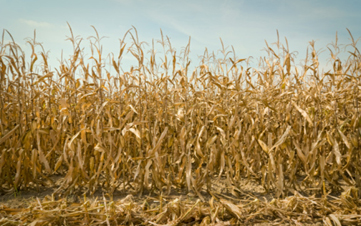
Profit and prosper with the best of Kiplinger's advice on investing, taxes, retirement, personal finance and much more. Delivered daily. Enter your email in the box and click Sign Me Up.
You are now subscribed
Your newsletter sign-up was successful
Want to add more newsletters?

Delivered daily
Kiplinger Today
Profit and prosper with the best of Kiplinger's advice on investing, taxes, retirement, personal finance and much more delivered daily. Smart money moves start here.

Sent five days a week
Kiplinger A Step Ahead
Get practical help to make better financial decisions in your everyday life, from spending to savings on top deals.

Delivered daily
Kiplinger Closing Bell
Get today's biggest financial and investing headlines delivered to your inbox every day the U.S. stock market is open.

Sent twice a week
Kiplinger Adviser Intel
Financial pros across the country share best practices and fresh tactics to preserve and grow your wealth.

Delivered weekly
Kiplinger Tax Tips
Trim your federal and state tax bills with practical tax-planning and tax-cutting strategies.

Sent twice a week
Kiplinger Retirement Tips
Your twice-a-week guide to planning and enjoying a financially secure and richly rewarding retirement

Sent bimonthly.
Kiplinger Adviser Angle
Insights for advisers, wealth managers and other financial professionals.

Sent twice a week
Kiplinger Investing Weekly
Your twice-a-week roundup of promising stocks, funds, companies and industries you should consider, ones you should avoid, and why.

Sent weekly for six weeks
Kiplinger Invest for Retirement
Your step-by-step six-part series on how to invest for retirement, from devising a successful strategy to exactly which investments to choose.
This year's drought, which is toasting more than half of the U.S., is the nation’s worst since the 1950s. Its impact will ripple through the economy, touching lives in a myriad of different ways -- from an uptick in fuel and some food prices to stringent water use restrictions. There are some drought upsides, too, including tastier fruit because most fruit trees like it dry, thank you very much.
Click through our slide show to see what the drought spells for you.

Higher Milk Prices
Drought and heat are stressing dairy cows, leading to lower milk production and higher milk prices in grocery stores in coming months. Though a gallon of milk has averaged 2% less than a year ago in recent months, slipping below $3.40, the drought will force an about-face. Look for milk and other dairy product prices to average at least 4% more next year than this year.
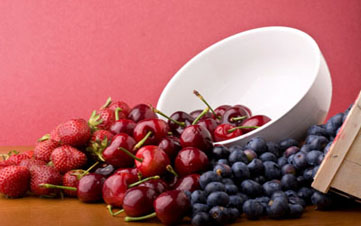
Cheaper Steaks (at least for now)
The drought will coax down already-falling beef prices even further, on average, from a record $5.09 a pound in January. Cattle ranchers are rushing to sell off more breeding stock because a whopping three-fourths of U.S. grazing areas are scorched.
Meanwhile, more cows are being slaughtered because pricey corn and soybean meal, both up 30%-40% since early June, make feeding them too costly.
The added beef on the market will trim both wholesale and retail prices. But next year, prices will zoom back up because of the depleted cattle herd.
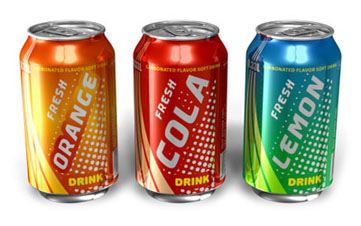
Tastier Fruit
Thirsty tree roots need water, to be sure, but most fruit and fruit-tree leaves, not so much. Drought starves the fungi, bacteria and other organisms that want to foul a tree's fruit or destroy its leaves. So an unusually dry season produces high-quality fruit, even though thirsty soils can result in smaller fruit size, from apples in the North to peaches in Georgia.
Note, too, that while most of the country is parched, leading fruit-growing regions -- those near the West, Atlantic and Gulf coasts and parts of the North -- have had enough rain for their orchards this year, or they're irrigating. So shortages aren't likely, and prices of major selections, including cherries, cantaloupes and avocados, are running cheaper than a year ago.

Soda Shortage?
No worries, soda lovers. Though the vastly stunted corn crop will deplete the supplies of high-fructose corn syrup used in making soft drinks, sweets and bakery products, there'll still be plenty of your favorite soft drinks to go around. Soda makers will simply switch to using sugar instead of corn syrup, which some folks think is better for you anyway. As it turns out, U.S. sugar stocks are ample and an expected record crop of U.S. sugar beets in northern states this fall, followed by a big sugar cane harvest in the Gulf Coast region, ensures a more-than-adequate supply of sweeteners.
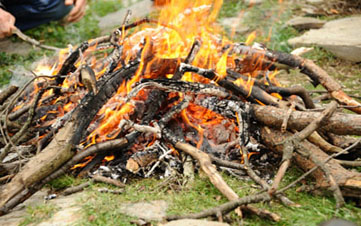
A Bump at the Gas Pump
By law, ethanol makes up 10% of the gasoline that most consumers buy at the pump, and ethanol prices are slowly rising in a nod to climbing prices of corn, a key feedstock for making ethanol. Some ethanol refineries are already cutting production. The decrease in savings from mixing ethanol in gasoline could raise gas prices by a few cents, especially as the effects of the drought become clearer in the coming months. Nonetheless, the price of crude oil plays a far greater role in determining prices at the pump.
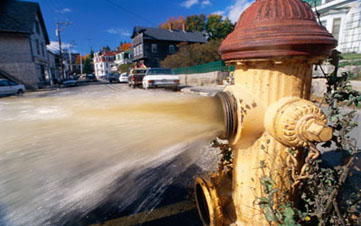
Widespread Burning Bans
Even if your neck of the woods never or rarely faces burning restrictions, you may see them this year. Large swaths of Northern California, the Midwest and the Southeast are all at a high risk for blazes. Usually-moist Missouri is now a declared drought area, for example, the first time in several decades that the state has announced a summer fire season. And in temperate Indiana, which has 40 inches of annual precipitation normally, nearly all counties have implemented burn bans.
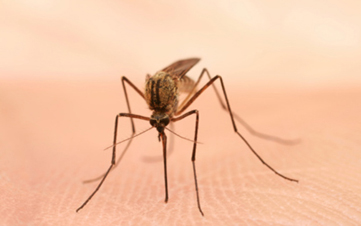
Water Use Restrictions
With 80% of the contiguous 48 states very short on rainfall this year, millions of urban and rural Americans will live with water use restrictions until rain recharges water sources and the spike in demand eases. Indianapolis residents can't water their lawns, for example, and in Nebraska, irrigation from most rivers and streams is banned, cutting off water to 1,100 farmers' fields.
Water conservation measures and use restrictions aren't common only to the dry Southwest and Great Plains anymore. Expanding population and increasing use of fresh water has led two-thirds of cities nationally, including 60% of small cities, to install conservation measures that can be activated when water is short.
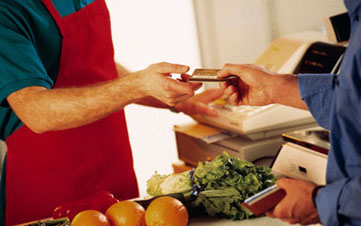
More Mosquitoes at Your Cookout
The drought is generally detrimental to mosquito populations. Small pools, puddles, gutters and other favored breeding areas dry up with lack of rain. Still, the drought offers mosquitoes new breeding environs. As water levels fall in some ponds and streams, the bugs can reproduce on the edges of the stagnant pools that remain. Mosquito populations tend to dwindle in late summer, but the pests could rebound when these new habitats become more common throughout the drought.

More From Kiplinger
SLIDE SHOW: Save on Groceries Without Coupons
QUIZ: Warehouse Stores a Good Deal?
Profit and prosper with the best of Kiplinger's advice on investing, taxes, retirement, personal finance and much more. Delivered daily. Enter your email in the box and click Sign Me Up.

-
 Nasdaq Leads a Rocky Risk-On Rally: Stock Market Today
Nasdaq Leads a Rocky Risk-On Rally: Stock Market TodayAnother worrying bout of late-session weakness couldn't take down the main equity indexes on Wednesday.
-
 Quiz: Do You Know How to Avoid the "Medigap Trap?"
Quiz: Do You Know How to Avoid the "Medigap Trap?"Quiz Test your basic knowledge of the "Medigap Trap" in our quick quiz.
-
 5 Top Tax-Efficient Mutual Funds for Smarter Investing
5 Top Tax-Efficient Mutual Funds for Smarter InvestingMutual funds are many things, but "tax-friendly" usually isn't one of them. These are the exceptions.
-
 What New Tariffs Mean for Car Shoppers
What New Tariffs Mean for Car ShoppersThe Kiplinger Letter Car deals are growing scarcer. Meanwhile, tax credits for EVs are on the way out, but tax breaks for car loans are coming.
-
 AI’s Rapid Rise Sparks New Cyber Threats
AI’s Rapid Rise Sparks New Cyber ThreatsThe Kiplinger Letter Cybersecurity professionals are racing to ward off AI threats while also using AI tools to shore up defenses.
-
 Blue Collar Workers Add AI to Their Toolboxes
Blue Collar Workers Add AI to Their ToolboxesThe Kiplinger Letter AI can’t fix a leak or install lighting, but more and more tradespeople are adopting artificial intelligence for back-office work and other tasks.
-
 AI Goes To School
AI Goes To SchoolThe Kiplinger Letter Artificial intelligence is rapidly heading to K-12 classrooms nationwide. Expect tech companies to cash in on the fast-emerging trend.
-
 What to Do With Your Tax Refund: 6 Ways to Bring Growth
What to Do With Your Tax Refund: 6 Ways to Bring GrowthUse your 2024 tax refund to boost short-term or long-term financial goals by putting it in one of these six places.
-
 What Does Medicare Not Cover? Eight Things You Should Know
What Does Medicare Not Cover? Eight Things You Should KnowMedicare Part A and Part B leave gaps in your healthcare coverage. But Medicare Advantage has problems, too.
-
 What To Know if You’re in the Market for a New Car This Year
What To Know if You’re in the Market for a New Car This YearThe Kiplinger Letter Buying a new car will get a little easier, but don’t expect many deals.
-
 15 Reasons You'll Regret an RV in Retirement
15 Reasons You'll Regret an RV in RetirementMaking Your Money Last Here's why you might regret an RV in retirement. RV-savvy retirees talk about the downsides of spending retirement in a motorhome, travel trailer, fifth wheel, or other recreational vehicle.
